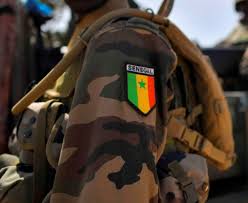At least two soldiers under the regional West African peacekeeping force are dead and nine others missing after skirmishes inside The Gambia between Senegalese troops and separatists of Senegal’s southern region, APA learnt on Wednesday.
Reports say a Senegalese contingent of ECOMIG exchanged fire with separatists of the Movement of the Democratic Forces of the Casamance (MFDC) who were trafficking logs through Gambia’s Foni region which borders southern Senegal.
One MFDC fighter was also killed and several others had been captured according to reports quoting the Senegalese army.
The 2000-strong Ecowas Mission in The Gambia deployed in the aftermath of the post-electoral crisis in the country in January 2017 have also confirmed the clashes.
The shooting incident which took place in the rural town of Bwiam, 105km southeast of the Gambian capital Banjul, involved MFDC fighters reportedly smuggling wood from the forest regions of Casamance, an activity frowned upon by successive Senegalese governments.
A statement released by President Macky Sall on Tuesday condoling with the families of the soldiers killed in the gunfight suggests that Senegalese troops under the Ecowas military mission in The Gambia were hot on the heels of the MFDC log traffickers when the shooting ensued.
Although this cannot be independently verified, there are reports that Senegal and The Gambia have a tacit agreement allowing Senegalese troops under ECOMIG stationed in the south of the country to crack down on the trafficking of logs.
The illegal trade has been worth millions of dollars in the past few years.
It has been a well known secret for years that the MFDC rebels in southern Senegal have been smuggling logs through The Gambia to finance their separatist war against the central government in Dakar.
Senegal is almost split into unequal halves by mainland Africa’s smallest nation which is used as a transit point by syndicates to ferry illegal logs to China and other destinations.
The MFDC have been waging a low-intensity conflict for independence from the rest of Senegal since 1982.
WN/as/APA


